'London is becoming a city without children'
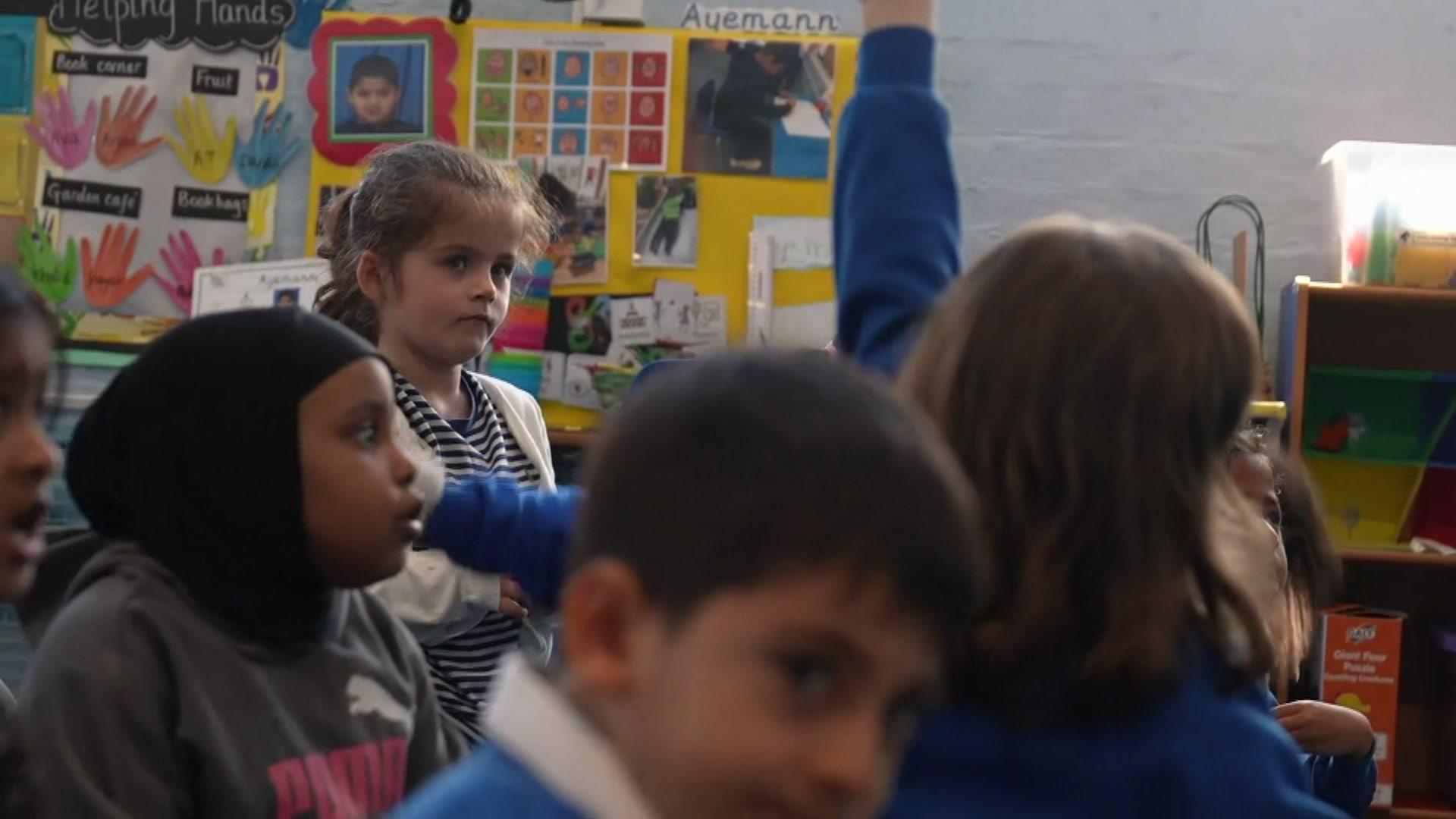
Carlton School merged with Rhyl Community School in 2021 due to falling pupil numbers
At a glance
The birth rate in London has fallen by 17% in nine years
Families are being squeezed out as house prices and rent become unaffordable for many
As a result schools are closing in their droves as they struggle to fill classrooms
The government says it is up to local authorities "to balance the supply and demand of school places"
- Published
London schools are struggling to stay open as pupil numbers plummet with rising rents and sky-high house prices, coupled with the cost-of-living crisis, among the factors squeezing families out.
Between 2012 and 2021 there was a 17% decrease in London's birth rate, accounting for 23,000 fewer babies in the capital, according to data from London Councils.
Worst-hit central borough Camden has the second-lowest birth rate in the country, while the average house price in the area is more than £1m. Over the past four years it has announced that four primary schools are set to close.
One of those, St Dominic's in Gospel Oak, has about 40 pupils left. It is due to shut at the end of the school year but staff are wondering whether they can meet the building's energy costs until then, according to the National Education Union's (NEU) Camden branch secretary.
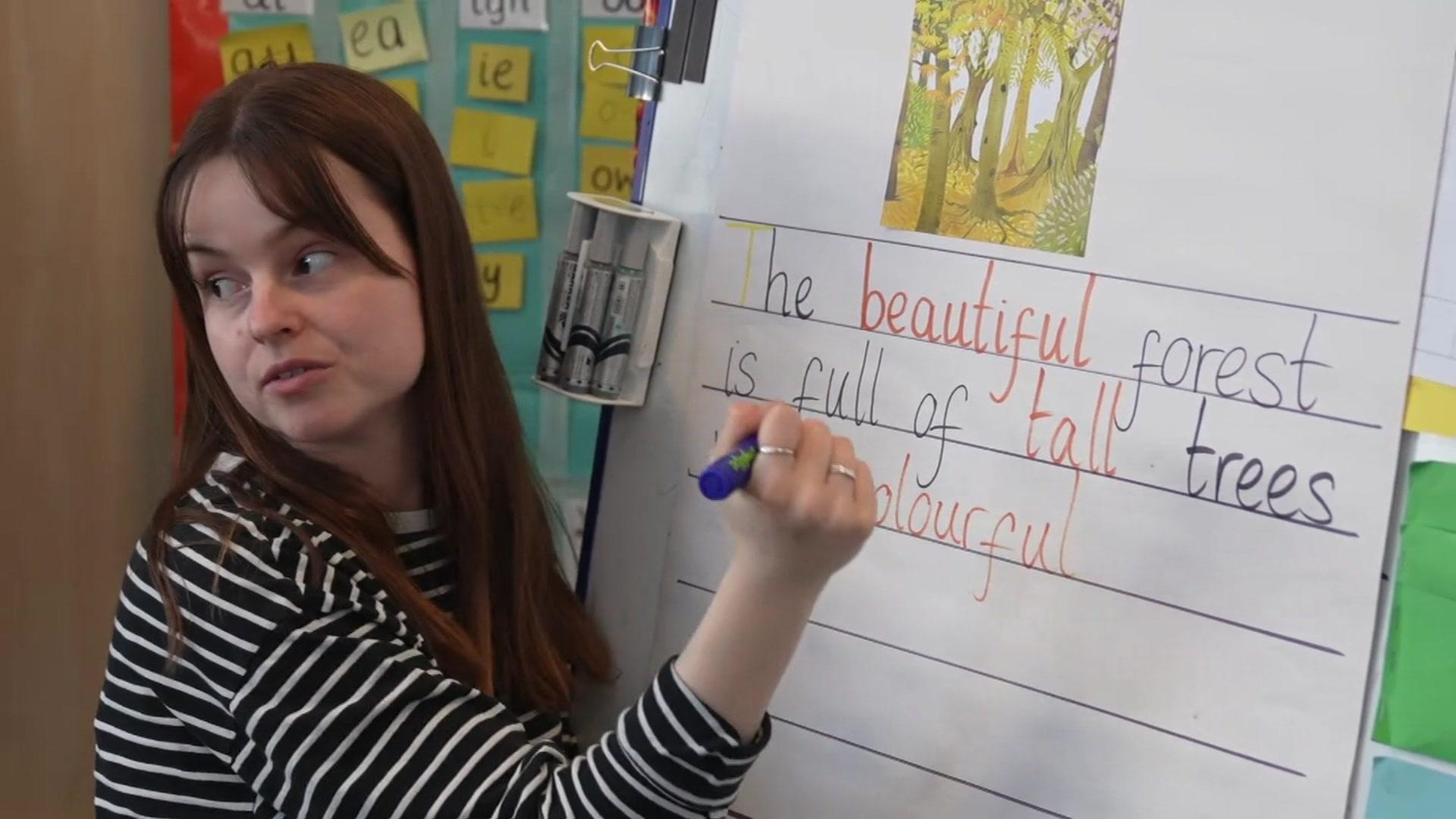
Rhyl Community School is still not full despite two recent local school closures
Carlton Primary School in Kentish Town was half full when it closed in 2021. It has since merged with Rhyl Community School, across two sites.
But the school is still struggling to fill its places despite the closure of two local primary schools, executive head teacher Helen Connor told BBC London.
"If we can't fill the places, we don't have enough money to educate the children and keep the school open," she said.
"When a school closes, it's devastating, it's the heart of the community - there is so much that they offer. When that's not there any more, the community is going to start to fall apart."
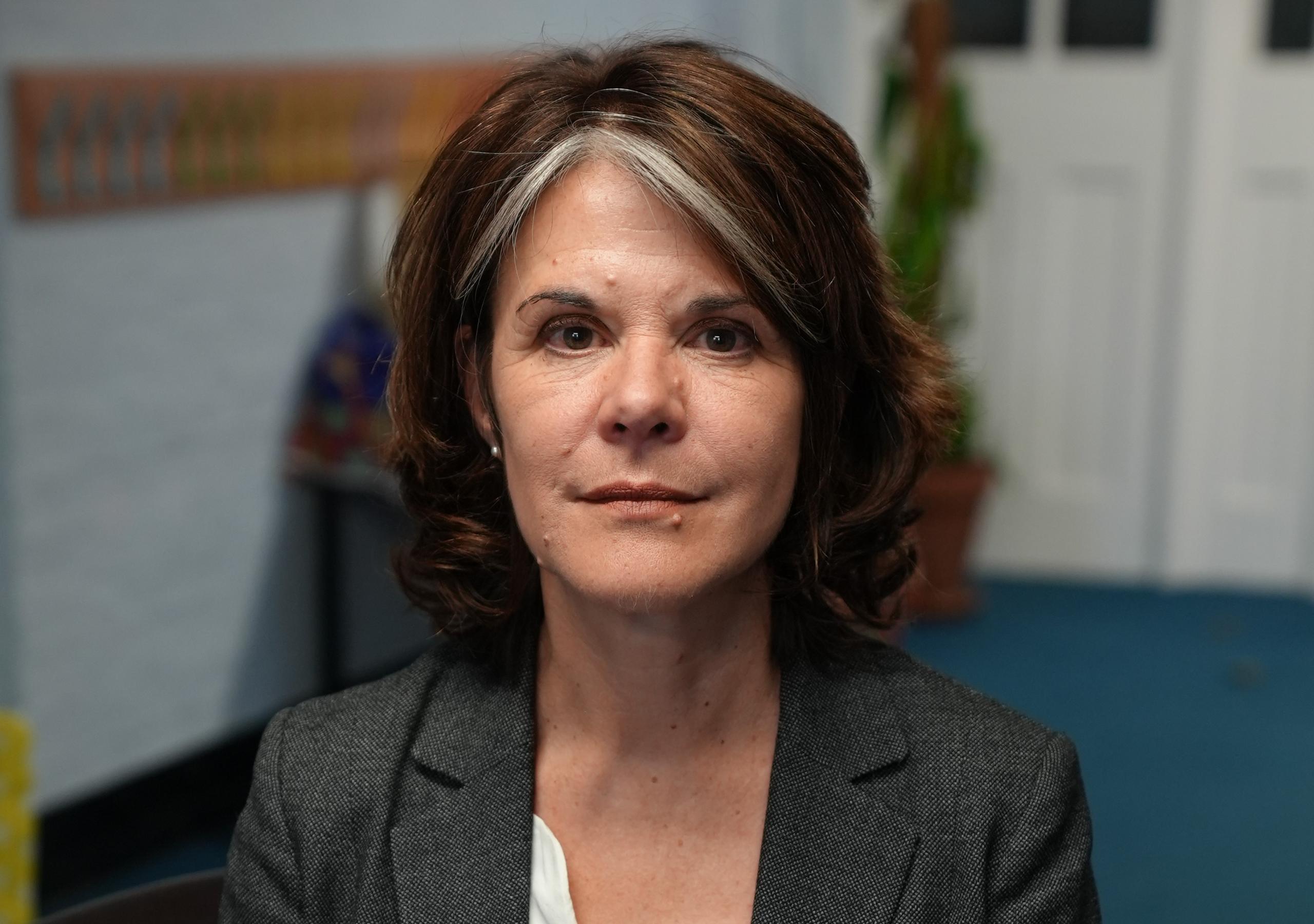
Executive head teacher Helen Connor of Rhyl Primary said pupil numbers had dwindled for the last nine years
Ms Connor added she was "very worried" about the situation.
"If you don't have schools, we won't have educated young people working in the community," she said.
"We've had families moving out the area because they can't afford the rent. When Brexit happened, we had a small number of Eastern European families that moved back to Europe.
"There are just not enough children in our area."
For every primary pupils that leaves, a school loses about £4,000.
To keep its funding and to attract prospective parents, Rhyl has broadened its age group to include babies. It also now provides community services such as breastfeeding clinics and adult learning to keep parents in the area.
Elsewhere in the capital, Hackney has warned that two of its primaries are likely to fold and another four may have to merge to survive. Meanwhile, Southwark has 16 schools at risk with a 26% decrease in demand since 2015.
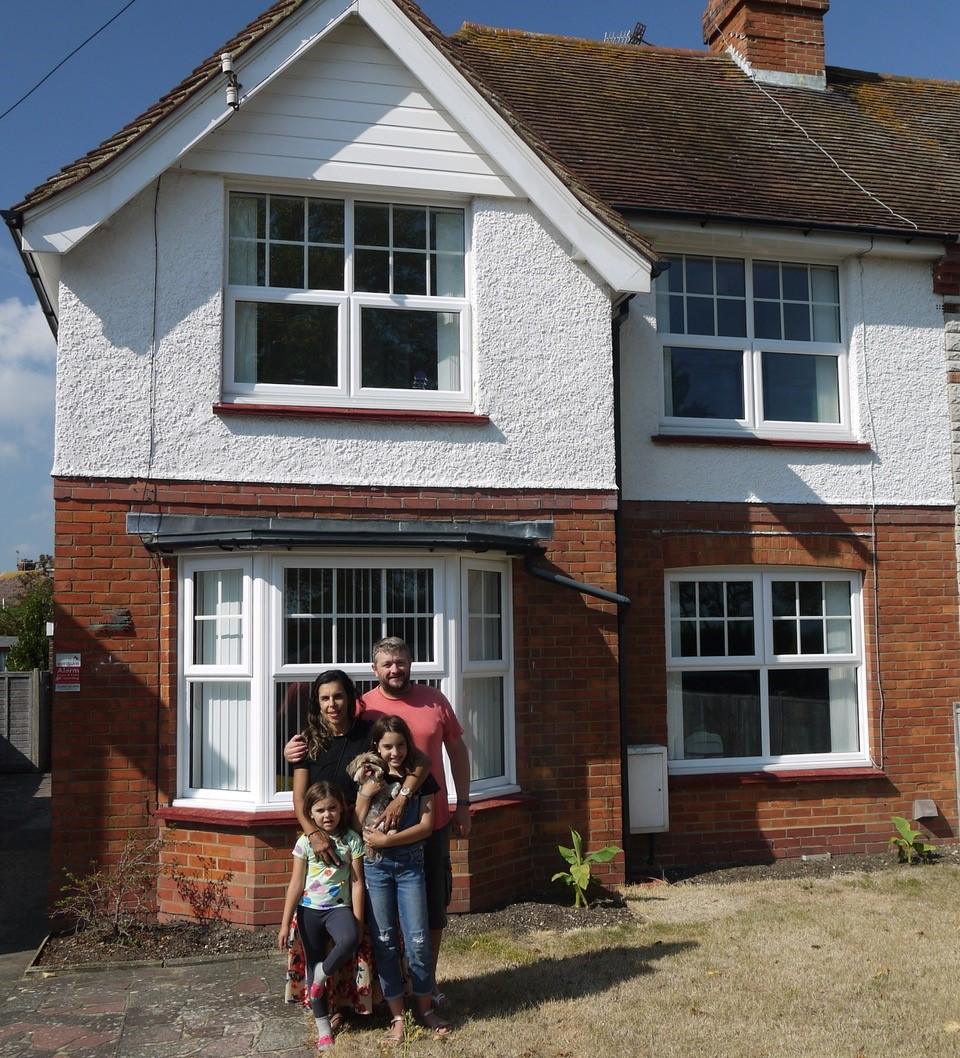
Former Forest Hill residents Chris and Roberta Hodder moved to Eastbourne due to house prices
Chris and Roberta Hodder recently moved from Forest Hill in Lewisham to Eastbourne in Sussex with their children, aged six and 11.
They told BBC London that for them it was the prospect of never being able to own a house that drove them out of London.
Their former three-bed rented property has now sold for £600,000 as they settle by the seaside in a house the same size they bought for £200,000.
"As we were planning to leave, we noticed quite a few kids disappear off the books at our local primary. While visiting a house in another coastal town, there was a couple next to us who were also planning to move out of the city; it definitely seemed like the trend around us," Mr Hodder, a lobbyist, explained.
"Long term, we need security for our family. I don't think it's healthy that London is becoming a city without children - it's becoming a necropolis."
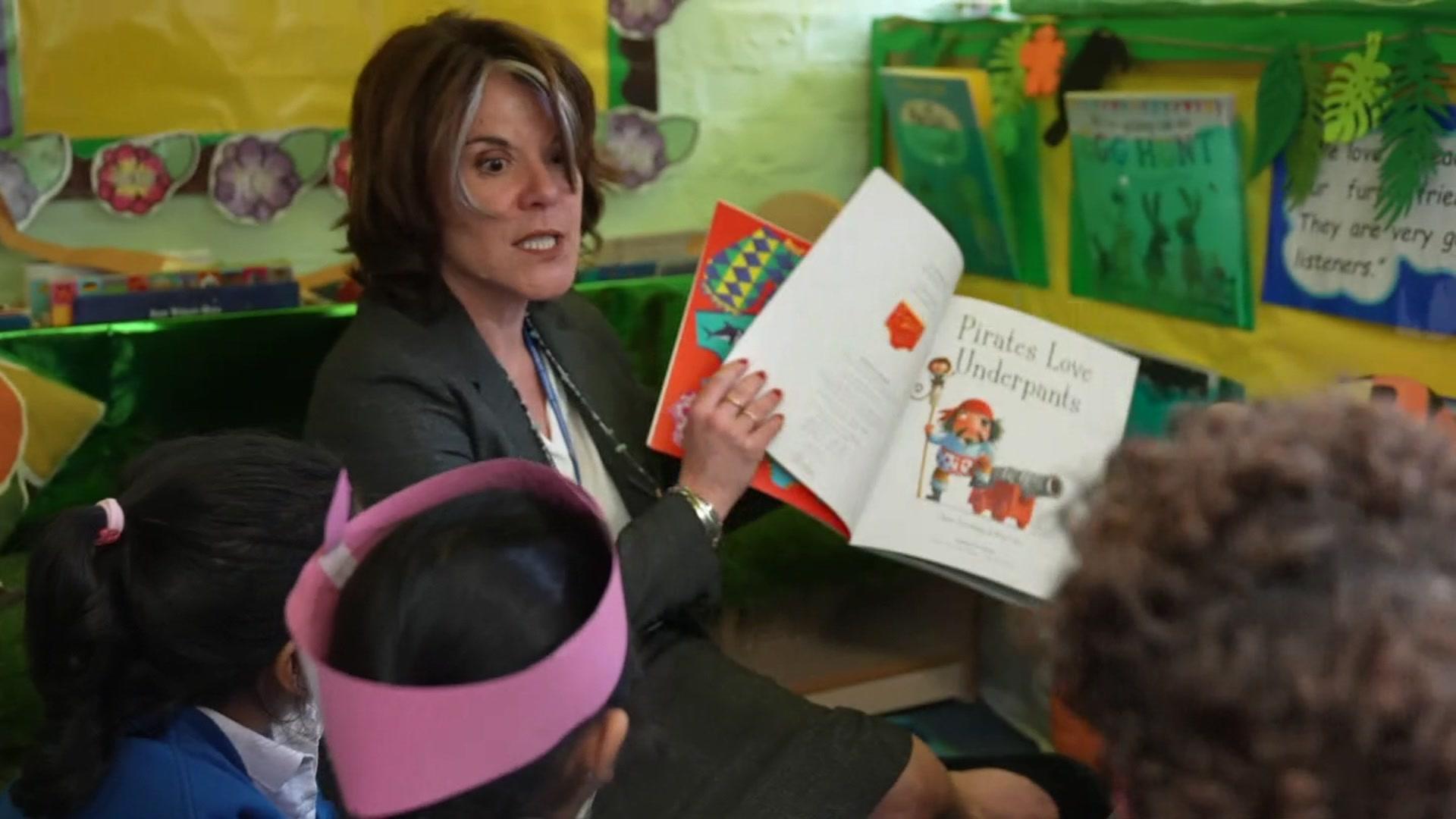
Ms Connor says house prices, Brexit and the cost of living has pushed families further out
As well as dealing with the exodus of children, schools are struggling to recruit enough staff, according to teacher and Camden NEU branch secretary Andrew Dyer.
He said the situation was "at a crisis point".
"Young teachers also can't afford to live in the area as well, and when they hear about schools closing, taking a job in this borough is not an attractive prospect if it may close soon," he said.
"It points to what Camden and other central boroughs may look like in the future and it's bleak. It used to be a borough full of creativity with life and families."
Mr Dyer added that "if the government wants state schools to be attractive for teachers and families alike, they need assurance that their budgets are not going to be cut".
More on schools
More London children get first-choice primary school
- Published17 April 2023
Teachers' strike affects more schools than ever
- Published3 May 2023
'Deciding to close our school has been horrible'
- Published31 January 2023
Camden Council leader Georgia Gould believes that one of the biggest contributing factors to families leaving the capital was the benefit cap introduced in 2016, which limited the amount families in London could receive to £23,000.
She said: "We're seeing central London increasingly hollowed out and children forced out across central London. In Camden we're doing everything we can to support children, we're building thousands of council homes and we're buying back homes lost to right-to-buy.
"Unless we see a change in national policy - real investment in council homes, an end to the housing benefit cap - unfortunately we're going to see the further decimation of the centre of our cities."
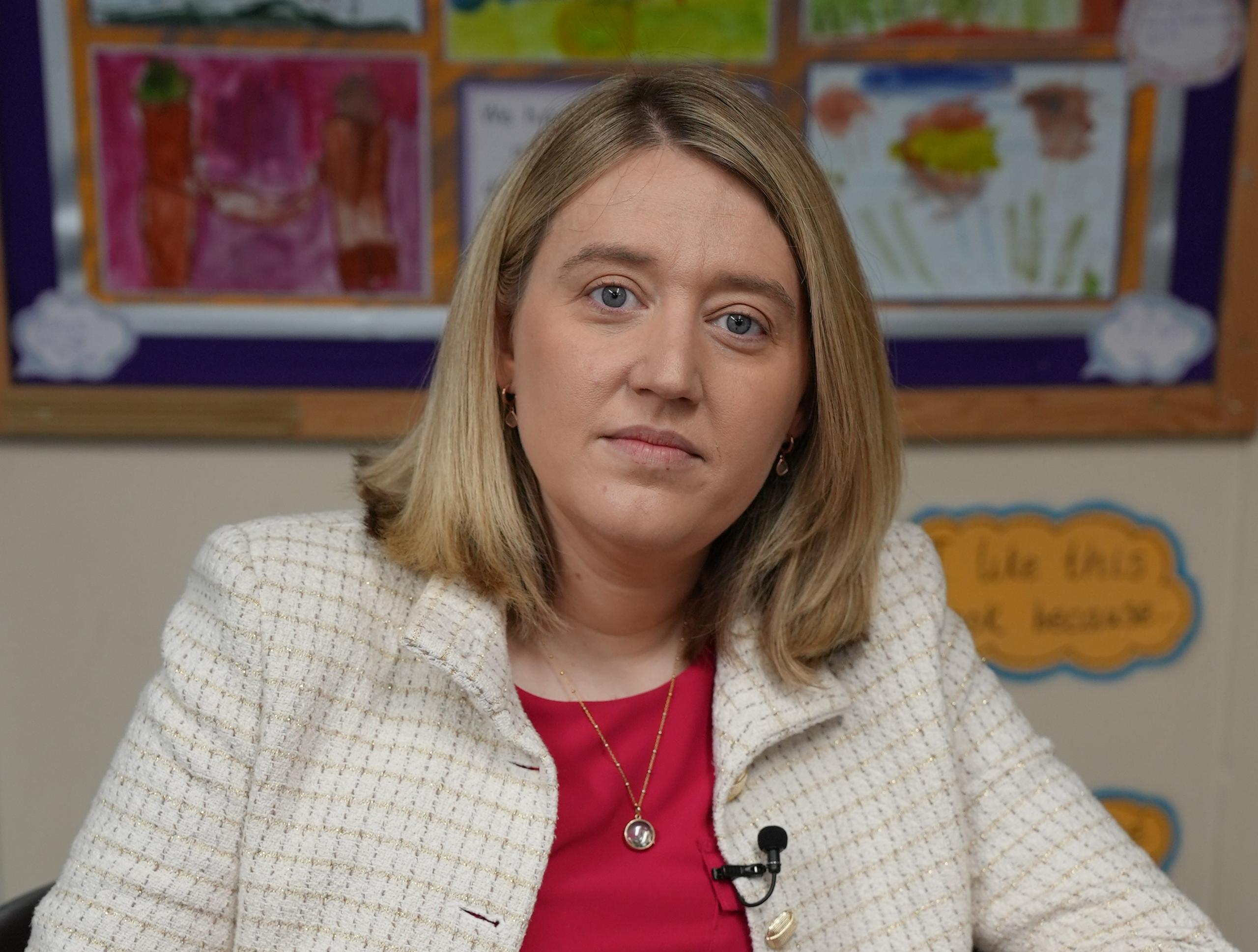
Georgia Gould believes only a change in government policy will bring about change
A Department for Education spokesperson said: "Next year, school funding will be at its highest level in history - in real terms - as measured by the Institute for Fiscal Studies, following the additional £2bn of investment for both 2023 to 24 and 2024 to 2025 in the autumn statement.
"It is for local authorities and academy trusts to balance the supply and demand of school places, in line with changing demographics, as they have done for many years."
Are you affected by issues covered in this story? Email haveyoursay@bbc.co.uk, external.

Follow BBC London on Facebook, external, Twitter, external and Instagram, external. Send your story ideas to hellobbclondon@bbc.co.uk, external